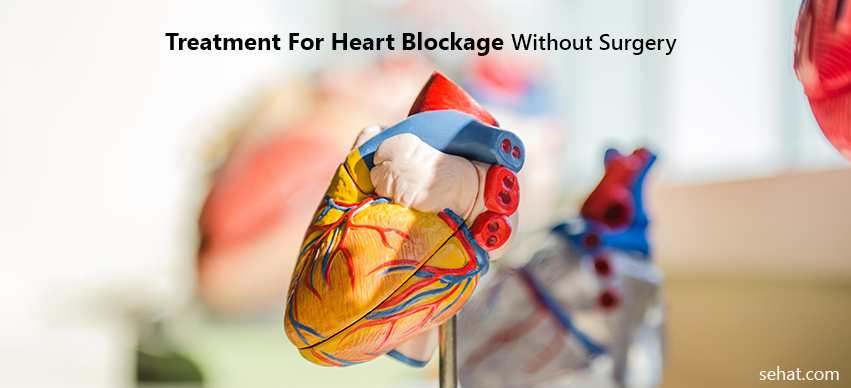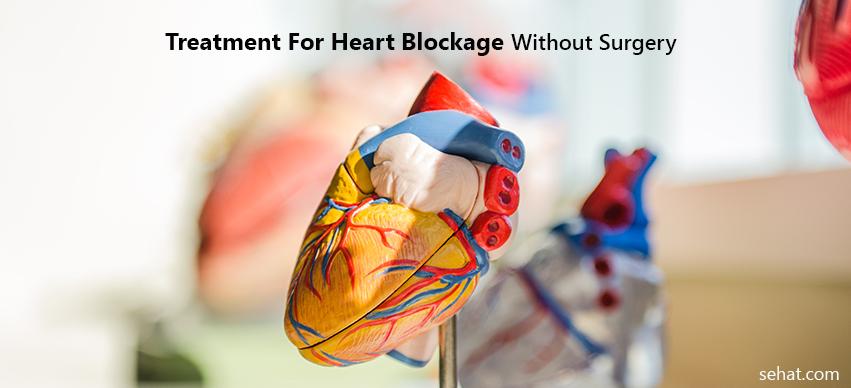Everyday Habits That Can Protect Your Eyes from Damage
4 Min Read


Heart blockage is a condition obstructing blood supply to the heart. The patient experiences various symptoms due to heart blockages such as chest pain, difficulty breathing, and pain in the arms and shoulders. Here in thin article, you will know the heart blockage treatment without surgery.
Heart blockage is also known as coronary artery disease. It is a serious condition and requires medical intervention to treat and prevent the progression of the disease. Coronary arteries provide blood to the muscles and other tissues of the heart. Coronary artery disease involves the partial obstruction or complete blockage of the artery. Atherosclerosis is the medical term for the blockage of arteries due to plaque formation. The plaques prevent the blood from flowing to the heart resulting in various symptoms.
Different people experience different symptoms due to coronary artery diseases. Most of the patients do not experience symptoms during the initial stages of the disease. However, the symptoms present themselves as the disease progresses.
Some of the common symptoms related to coronary artery diseases include;
The coronary artery supplies blood to the heart. As there is a reduction in the blood supply to the heart in coronary artery disease, the heart cannot pump the blood effectively. The patient may experience shortness of breath. The person also experiences fatigue while performing physical activity.
As the heart experiences lack of oxygen and energy, there is an initiation of tissue damage. It results in pain and tightness in the chest.
If there is a complete blockage in the artery, the patient may experience a heart attack. The patient may have pain in the chest that radiates to arms and shoulders with difficulty breathing and sweating.
The primary cause of coronary artery blockage is the accumulation of cholesterol or plaque in the artery. Accumulation of cholesterol in the coronary artery is known as atherosclerosis. It damages the inner arterial wall.
Other conditions that may cause injury to the arterial wall are;
The surface of the arterial wall ruptures due to atherosclerosis. It may result in the accumulation of platelets in the artery. It blocks the blood supply to the heart.
Various factors increase the risk of heart blockage. Elderly, smokers, or people with a family history of heart disease are at increased risk for developing heart blockage.
Men are more vulnerable to heart blockage than women. People with diabetes, uncontrolled blood pressure, obesity, and leading sedentary lifestyle are also prone to this condition.
Stress and physical inactivity also increase the risk of heart blockage.
There are various treatment options for managing heart blockage. In many cases, you don't need surgery. However, your disease should not progress in the advanced stage. The doctor may recommend lifestyle changes, prescribe certain medications, and advise you to undergo angioplasty. Medications include beta-blockers, aspirin, cholesterol-lowering medications, and ACE inhibitors.
In multiple coronary artery blockages, the doctor may recommend open-heart surgery or coronary artery bypass surgery. In this surgery, the doctor takes the artery from another place from the body and grafts it to make a bypass that avoids the blocked artery.
Changing dietary habits, incorporating certain foods into the diet, living a healthy lifestyle, and routine exercise may help manage heart blockage.
Avoid taking saturated fats and add unsaturated fats into your diet.
Foods that have a beneficial effect on heart blockage are berries, tomato, onion, beans, and flax seeds.
Following are some of the tips to prevent heart blockage;
The cholesterol accumulates in the coronary artery and blocks the blood flow to the heart. The person must lead a healthy lifestyle, manage weight, and cut down on consuming saturated fats.